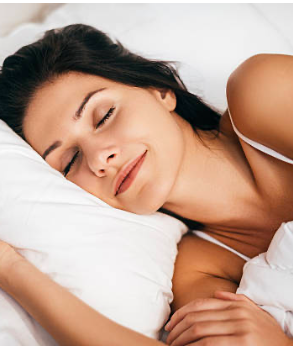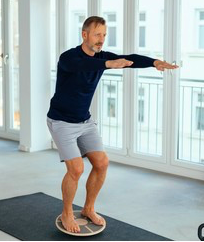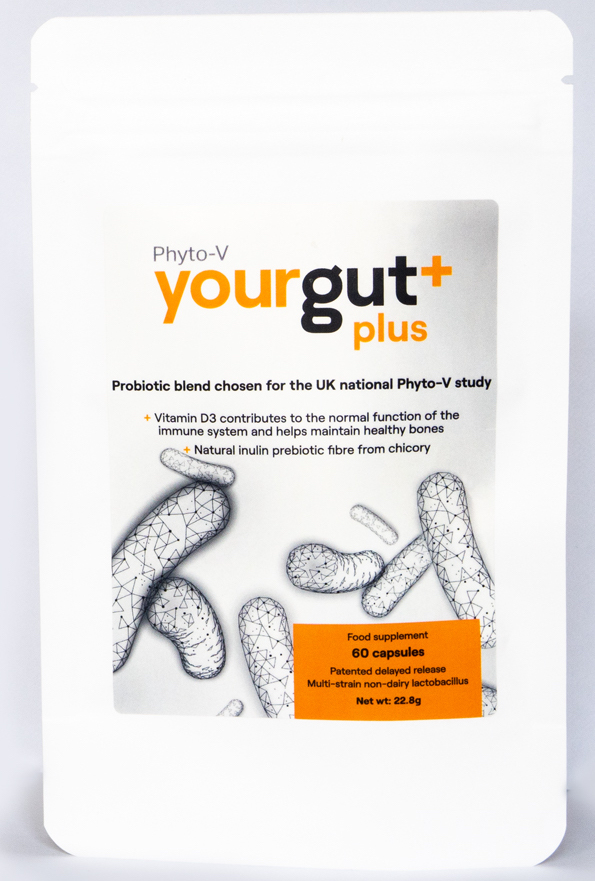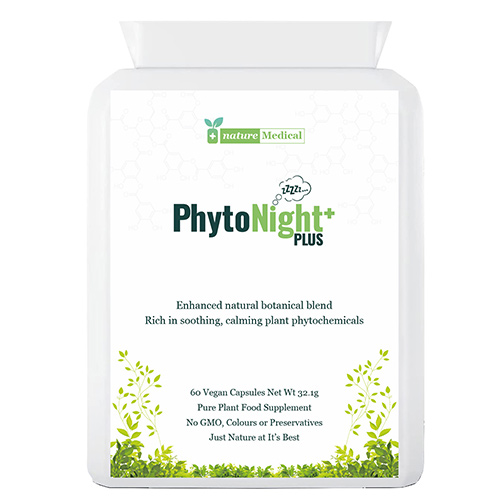Sleep

This page explains why we need sleep, what happens when we do not get enough, the evidence for self help strategies and advice on which over the counter supplements help. It provides the answers for commonly asked questions concerning over 20 million people in the UK everyday:
- How to go to sleep fast
- How to get more deep sleep
- Why can’t I sleep at night even when i’m tired
How much sleep do I need: We need around 7 hours of sleep to avoid daytime fatigue but up to 30% of the population regularly get less than 6 hours/night. Following a serious illnesses insomnia effects up to 70%.
What is REM sleep: Rapid Eye Movement sleep is sleep is characterised quick eye movement, altered breathing and enhanced brain activity. The balance of REM and deep sleep is important for memory consolidation, emotional processing, brain development and dreaming.
Why do we need sleep: Sleep slows the cell cycle which helps DNA repair, reboots energy stores and clears out toxins which have built up over the day. Chronically poor sleep adversely effects gut health, impairs immune function, interferes with melatonin release and hence interferes with a normal circadian rhythm. In the short term, a poor night’s sleep causes:

- Fatigue
- Memory loss and poor concentration
- Irritability and relationship issues
- Demotivation to exercise live healthily
In the long term, it contributes to chronic disease:
- Obesity and Diabetes
- Poor gut health
- Heart disease and high blood pressure
- Parkinson’s disease and dementia.
In addition, chronic insomnia and occupations such as night shift workers, are classed as risk factors for cancer. A study breast cancer survivors found that insomniacs had a 50% worse cure rate but interestingly woman who regularly slept more than 9 hours a night were also more likely to relapse – probably due to disruption in circadian rhythm by sleeping too long. Other factors that disturb sleep or disrupt the circadian rhythm have also been linked to an increased cancer risk such as eating late at night and skipping breakfast.
How to sleep better
The first step in managing insomnia is to identify, and hopefully treat, conditions which cause discomfort and wakefulness at night such as anxiety, depression, pain, joint discomfort, restless legs, sleep apnoea and obesity, passing water at night, indigestion and hot flushes (night sweats).
Prescription medications such as hypnotics and Z-drugs which enhance the neuro-inhibitor Gamma-aminobutyric acid (GABA) are useful in the short term such after an emotional trauma or in the days after chemotherapy to counterbalance steroid wakefulness. Many doctors are cautions in prescribing them for long term use as they simply mask the symptoms without treating the underlying cause and studies have linked chronic use with dementia. These tablets also become less effective over time, meaning users often wake up in the early hours, unable to get back to sleep. Also these drugs reduce the amount of Rapid Eye Movement (REM) sleep. REM sleep plays a role in memory consolidation, emotional processing, brain development, and dreaming.
Watch this 20 minute presentation
“The evidence for lifestyle and nutritional strategies to improve sleep”
British Society of Lifestyle Medicine 2023
Lifestyle and dietary strategies to improve sleep
Sleep hygiene advice provide tips on how to fix sleep schedule with practical strategies such as blackout curtains the bedroom, avoiding blue light, weighted blankets or avoiding stimulating electronics before bed, avoiding eating late at night – click here for the latest sleep hygiene rules.
 Exercise: The benefits of regular exercise were summarised in 6 RCT in which participants randomised to moderate to strenuous exercise programmes had better sleep latency and better quality of life. Exercise helps to regulate the circadian rhythm, but for the best effect, for most people, it is better to exercise in the morning rather than very late in the evening. The other advantage of exercising in the daylight is to improve vitamin D levels as studies have also linked low vitamin D levels with insomnia.
Exercise: The benefits of regular exercise were summarised in 6 RCT in which participants randomised to moderate to strenuous exercise programmes had better sleep latency and better quality of life. Exercise helps to regulate the circadian rhythm, but for the best effect, for most people, it is better to exercise in the morning rather than very late in the evening. The other advantage of exercising in the daylight is to improve vitamin D levels as studies have also linked low vitamin D levels with insomnia.
Dietary factors: Avoiding caffeine and other stimulants from late afternoon is obvious but other, less well-known, habits include avoiding food late at night and eating breakfast which helps regulation of circadian rhythm. A correlation between processes sugar and poor sleep patterns was identified in number of studies including one involving 100 students using food frequency and sleep quality questionnaires in the weeks leading up to their exams.
Improve gut health: Poor gut health has been linked to insomnia in several studies so ensuring adequate pre and pro biotic rich foods in the diet would be sensible. As well as dietary measures to improve gut health, one double blind RCT reported that participants randomised to a Lactobacillus probiotic had significant improved sleep maintenance plus less day time fatigue compared to placebo.
 Prebiotic foods include legumes, mushroom and chicory. Probiotic bacteria can be found in kefir, kimchi and sauerkraut (read more) or a good quality probiotic supplement such as YourGutplus+ which has lactobacillus combined with vitamin D and inulin.
Prebiotic foods include legumes, mushroom and chicory. Probiotic bacteria can be found in kefir, kimchi and sauerkraut (read more) or a good quality probiotic supplement such as YourGutplus+ which has lactobacillus combined with vitamin D and inulin.
Phytochemical rich foods: These gifts from nature provide the colour, odour and taste of many heathy foods such as vegetables, herbs, fruits and spices. They influence several mechanisms which interfere with a restful night. For instance, the phytochemicals resveratrol and apigenin found in polygonum cuspitadum root, grapes and chamomile have a synergistic calming, rather than sedating, effects which can reduce stress, improve mood and helping to reduce negative, wakeful thoughts at night. Curcuminoid in turmeric have anti-inflammatory and other positive effects on joints, helping to improve comfort at night amoung people with arthritis. Citrus bioflavonoids, resveratrol and quercetin in pomegranate help naturally enhance melatonin and restore the circadian rhythm get back . These foods, even if concentrated have a high safety profile.
Phytochemical rich supplements, if well made, are a convenient why to boost intake to levels well above eating the whole foods themselves. Boosting the intake of phytochemical within nutritional supplement to levels well above that achieved from whole foods themselves. They are also very healthy and can play a remarkable role in preventing a wide range of chronic diseases and even improving nails as well as improving sleep quality. The largest group of naturally-occurring polyphenols are the flavonoids, including apigenin.
 Phytonightplus+ has some of the best scientific evidence for improving sleep and reducing day time fatigue. This data emerged from a RCT involving participants suffering from long covid who commonly report insomnia, fatigue low mood. The intervention gave a combination of lactobacillus probiotics and a blend of concentrated whole foods rich foods which rich in the phytochemicals ellagic Acid, quercetin and EGCG in Pomegranate, curcuminoids in Turmeric, Apigenin in chamomile and citrus sinensis, hesperetin (from Pomegranate, Citrus Sinensis fruit) and resveratrol (from polygonum cuspidatum root). These foods do not effect GABA levels or cause direct sedation so have no hangover or additive effects but work in synergy to:
Phytonightplus+ has some of the best scientific evidence for improving sleep and reducing day time fatigue. This data emerged from a RCT involving participants suffering from long covid who commonly report insomnia, fatigue low mood. The intervention gave a combination of lactobacillus probiotics and a blend of concentrated whole foods rich foods which rich in the phytochemicals ellagic Acid, quercetin and EGCG in Pomegranate, curcuminoids in Turmeric, Apigenin in chamomile and citrus sinensis, hesperetin (from Pomegranate, Citrus Sinensis fruit) and resveratrol (from polygonum cuspidatum root). These foods do not effect GABA levels or cause direct sedation so have no hangover or additive effects but work in synergy to:
- Improve mood and relax the mind and body
- Support gut health via their prebiotic properties,
- Ease joint discomfort via their anti-inflammatory properties
- Prepare the body for sleep by stimulating melatonin production
- Promotion of a regular circadian rhythm
The results published in 2022 showed a significant improvement in sleep, day time fatigue and other symptoms. The providers of the supplements for the trial have subsequently made the product available for the public over the counter (OTC).
Do melatonin supplements help sleep: Melatonin which is available OTC in some countries and can be prescribed in the UK by a doctor. It’s has been evaluated in over 35 RCT. Some of these showed some significant benefits for the short term but benefits for longer term use were not significant and many authors concluded that dietary strategies to naturally improve intrinsic melatonin levels would be better, certainly in the longer term.
Antihistamines such diphenhydramine in Benadryl and Doxylamine in Unisom can be bought OTC for hay fever or other allergies and can induce drowsiness which can aide sleep. Side effects include daytime drowsiness, dry mouth, constipation and urinary retention. There is evidence that they can help for two to three nights at a time but tolerance to the sedative effects of antihistamines can develop quickly. As a result, the longer you take them, the less likely help. In older adults, confusion, hallucinations, constipation, nausea, impaired sweating, urinary retention, glaucoma and tachycardia. In the longer term, Recent studies have shown that anticholinergics might increase the risk of cognitive decline.
Valerian plant extracts have been marketed for sleep problems in products such as Kalms. A number of RCT have been conducted summarised in two larger meta-analysies. About half reported a statistically significant benefit but most had publication bias and methological issues.
Chamomile has been used to treat sleep problems for years as it helps reduce anxiety and improve sleep quality. Chamomile is generally regarded as safe when used as a tea or taken orally. A cup of chamomile tea does not have sufficient quantities which is why trials of more concentrated extracts, are more convincing for the benefits for sleep. Apigenin within chamomile does not affect GABA receptors so less likely to cause sedation but instead improves mood so prepares the mind for sleep it also works better in synergy with other herbs which explains the beneficial effects of phytonight in the long covid trial.
Ashwagandha, an Indian medicinal plant that has been used for centuries to treat insomnia. It effects GABA receptors, so like valerian, can cause hangover effects in some people.
Does magnesium help you sleep: One small randomised trial of 46 elderly participants showed that supplementation of magnesium (mg) appeared to improve subjective measures of insomnia and likewise, insomnia objective measures such as concentration of serum renin, melatonin, and serum cortisol, in elderly people. A systemic review of 9 other RCT’s reported an uncertain association between magnesium supplementation and sleep disorders and concluded that futher more robust trials are needed. Interestingly, in a laboratory study mg deficiency was associated with low levels of melatonin which was corrected with mg supplementation but no improvement in melatonin if mg levels were normal, to start with. It is most likely that mg only helps if a person is deficient but not if levels are normal. Despite this lack of evidence of benefit for people wit normal levels of mg it is very popular OTC remedy would make sense to take a sensible mineral supplement which includes good but not excess levels of Magnesium – read more
In conclusion, insomnia is very common and under emphasised in the population and certainly after illness. There are plently of lifestyle and nutritional strategies which can help but those which don’t induce sedation such as phytonight+ have major long term advantages
Source references
Abbasi B et al. The effect of magnesium supplementation on primary insomnia in elderly: A double-blind placebo RCT. J Res Med Sci. 2012;17(12):1161-9.
Billyard A et al. Dietary magnesium deficiency decreases plasma melatonin in rats. Magnes Res. 2006 Sep;19(3):157-61. PMID: 17172005.
Abdullahzadeh M, et al. Investigation effect of oral chamomilla on sleep quality in elderly people : A RCT. J Educ Health Promot. 2017 5;6:53.
Amsterdam J,et al. A randomized, double-blind, placebo-controlled trial of oral Matricaria recutita (chamomile) extract therapy for generalized anxiety disorder. Journal of clinical psychopharmacology. 2009;29(4):378.
Amsterdam J, et al. Chamomile (Matricaria recutita) may provide antidepressant activity in anxious, depressed humans: an exploratory study. Alternative therapies in health and medicine. 2012;18(5):44–9.
Abbasi B et al. The effect of magnesium supplementation on primary insomnia in elderly: A double-blind placebo-controlled clinical trial. J Res Med Sci. 2012 Dec;17(12):1161-9.
Arab, A. et al. The Role of Magnesium in Sleep Health: a Systematic Review of Available Literature. Biol Trace Elem Res 201, 121–128 (2023). https://doi.org/10.1007/s12011-022-03162-1.
Abboud M. Vitamin D Supplementation and Sleep: A Systematic Review and Meta-Analysis of Intervention Studies. Nutrients. 2022 Mar 3;14(5):1076.
Appleton J. The Gut-Brain Axis: Integr Med (Encinitas). 2018;17(4):28-32
Reynolds AC, The shift work considering changes in gut microbiota as a pathway linking shift work, sleep loss and circadian misalignment, and metabolic disease. Sleep Med Rev. (2017) 34:3–9.
Alahmary et al (2019) Relationship Between Added Sugar Intake and Sleep Quality Among University Students: Am J Lifestyle Med. 23;16(1):122-129.
Bent S, et al. Valerian for sleep: a systematic review and meta-analysis. Am J Med. 2006 Dec;119(12):1005-12. doi: 10.1016/j.amjmed.2006.02.026. PMID: 17145239; PMCID: PMC4394901.
Blask DE (2009) Melatonin, sleep disturbance and cancer risk. Sleep Med Rev 13: 257–264.
Block KI, et al. Safety and efficacy of herbal sedatives in cancer care. Integr Cancer Ther. 2004;3(2):128–148.
Buxton OM, et al (2012) Adverse metabolic consequences in humans of prolonged sleep restriction combined with circadian disruption. Sci Transl Med 4: 129ra43.
Costello et al The effectiveness of melatonin for promoting healthy sleep. Nutr J. 2014 7;13:106.
Chen, J. et al. (2016). Sleep duration, cognitive decline, and dementia risk in older women. Alzheimer’s & dementia, 12(1), 21-33.
Cao et al Cancer and obstructive sleep – meta-analysis Medicine 101(10):p e28930, March 11, 2022.
Calhoun DA, Harding SM. Sleep and hypertension. Chest. 2010 138(2):434-43.
de Oliveira MR, et al. Molecular Mechanisms Underlying the Anti-depressant Effects of Resveratrol: a Review. Mol Neurobiol. 2018 Jun;55(6):4543-4559. doi: 10.1007/s12035-017-0680-6. Epub 2017 Jul 10. PMID: 28695536.
Guadagna S,. Plant Extracts for Sleep Disturbances: A Systematic Review. Evid Based Complement Alternat Med. 2020 Apr 21;2020:3792390
Hieu T et al. Therapeutic efficacy and safety of chamomile for state anxiety, generalized anxiety disorder, insomnia, and sleep quality: A systematic review and meta-analysis of randomized trials and quasi-randomized trials. Phytother Res. 2019;33(6):1604-1615.
Ho et al Effects of Lactobacillus supplement on Sleep: A Double-Blind, Placebo RCT Nutrients 2021, 13, 2820
Helo D, et al (2021) The association of skipping breakfast with cancer-related and all-cause mortality in a national cohort of united states adults. Cancer Causes Control 32(5):505–513. https://doi.org/10.1007/s10552-021-01401-9
Huang Jet al . Health benefits of dietary chronobiotics: beyond resynchronizing internal clocks. Food Funct. 2021 Jul 21;12(14):6136-6156. doi: 10.1039/d1fo00661d. Epub 2021 May 31. PMID: 34057166.
Hieu T et al. Therapeutic efficacy and safety of chamomile for state anxiety, generalized anxiety disorder, insomnia, and sleep quality: A systematic review and meta-analysis of randomized trials and quasi-randomized trials. Phytother Res. 2019;33(6):1604-1615.
International Agency for Research on Cancer. Iarc monographs volume 124: Night shift work 2019 https://www.iarc.who.int/news-events/iarc-monographs-volume-124-night-shift-work/. Accessed 26 Nov 2021.
Jessen et al. The Glymphatic System: Neurochem Res. 2015 ;40(12):2583-99.
Fiorentino L, Ancoli-Israel S (2006) Insomnia and its treatment in women with breast cancer. Sleep Med Rev 10: 419–429.
Leathwood PD, et al. Aqueous extract of valerian root (Valeriana officinalis L.) improves sleep quality in man. Pharmacol Biochem Behav. 1982 Jul;17(1):65-71. doi: 10.1016/0091-3057(82)90264-7. PMID: 7122669.
Leysen et al (2019). Insomnia in CaBsurvivors: meta-analyses. Support Care Can 27, 4401-33.
Lange T, et al(2010) Effects of sleep and circadian rhythm on the human immune system. Ann NY Acad Sci 1193: 48–59.
Lunn R et al (2017) Health consequences of electric lighting practices in the modern world: Shift work at night, artificial light at night, and circadian disruption. Sci Total Environ 607–608:1073–1084. https://doi.org/10.1016/j.scitotenv.2017.07.056
Mao J et al. Long-Term Chamomile Therapy of Generalized Anxiety Disorder: A Study Protocol for a RCT, Placebo- Controlled Trial. J Clin Trials. 2014 Nov;4(5):188. doi: 10.4172/2167-0870.1000188. Epub 2014
McGuire C et al (2023) Sleep disturbances, dyspnoea, and anxiety in long COVID. The Lancet, respiratory medicine. Vol 11, pp.664, https://doi.org/10.1016/S2213-2600(23)00138-8
Mullington J et al (2009) Cardiovascular, inflammatory, and metabolic consequences of sleep deprivation. Prog Cardiovasc Dis 51: 294–302.
National Center for Health Statistics: % of adults who reported <6 hr of sleep MMWR Morb Mortal Wkly Rep. 2005;54(37):933
National Heart, Blood, and Lung Institute. Sleep Deprivation and Deficiency. 2020. https://www.nhlbi.nih.gov/health-topics/sleep-deprivation-and-deficiency
Ozdemir PG, et al. Assessment of the effects of antihistamine drugs on mood, sleep quality, sleepiness, and dream anxiety. Int J Psychiatry Clin Pract. 2014 Aug;18(3):161-8. doi: 10.3109/13651501.2014.907919. Epub 2014 Apr 23.
Park CW, et al. Sleep-promoting activity of amylase-treated Ashwagandha (Withania somnifera L. Dunal) root extract via GABA receptors. J Food Drug Anal. 2023 Jun 15;31(2):278-288. doi: 10.38212/2224-6614.3456.
Palesh et al (2014) sleep disruption predictors survival among women with ca breast Sleep 37: 837–842.
Qiaoyu S et al. Strategies for circadian rhythm disturbances and related psychiatric disorders: a new cue based on plant polysaccharides and intestinal microbiota. Food & Function 2022, 13 (3) , 1048. https://doi.org/10.1039/D1FO02716F
Salamon I et al. Chamomile, a medicinal plant. Herb, Spice & Medicinal Plant Digest. 1992;10:1–4.
Salehi B, et al. The Therapeutic Potential of Apigenin. Int J Mol Sci. 2019 Mar 15;20(6):1305. doi: 10.3390/ijms20061305. PMID: 30875872; PMCID: PMC6472148.
Srour B, et al (2018) Circadian nutritional behaviours and cancer risk: New insights from the nutrinet-santé prospective cohort study: Disclaimers. Int J Cancer 143(10):2369–2379. https://doi.org/10.1002/ijc.31584
Sephton S, et al (2003) Circadian disruption in cancer: a neuroendocrine-immune pathway from stress to disease? Brain Behav Immun 17: 321–328.
Salamon I et al. Chamomile, a medicinal plant. Herb, Spice & Medicinal Plant Digest. 1992;10:1–4.
Shen C et al Dietary polyphenols and mechanisms of osteoarthritis Phytother Res. 2010;24(2):182-5.
Trudel-Fitzgerald et al. Sleep and survival among women with Ca B : 30 years of follow-up within the Nurses’ Health Study. Br J Cancer 116, 1239–1246 (2017).
Thomas JM, et al. Circadian rhythm phase shifts caused by timed exercise vary with chronotype. JCI Insight. 2020 Feb 13;5(3):e134270. doi: 10.1172/jci.insight.134270. PMID: 31895695; PMCID: PMC7098792.
Thomas R et al. Lifestyle factors correlate with the risk of late pelvic symptoms after prostatic radiotherapy. Clinical Oncology (2013) 25 (4) 246-251.
Thomas R, et al. A prospective survey of chapped lips and cold sores during chemotherapy. Focus on Cancer Medicine (2010); 2 (1) 3-7.
Thomas R, et al. A double blind, placebo controlled randomised trial (RCT) evaluating the effect of a polyphenol rich whole food supplement on PSA progression in men with prostate cancer – The UK National Cancer Research Network (NCRN) Pomi-T study. Prostate Cancer and Prostatic Diseases. (2014) 17,180-6
Thomas R, et al Prostate Cancer Progression Defined by MRI Correlates with Serum PSA in Men Undergoing Lifestyle and Nutritional Interventions for Low Risk Disease. J Lifestyle Dis Management. 2015 01 01
Thomas R, t al (2021) The Influence of a blend of Probiotic Lactobacillus and Prebiotic Inulin on the Duration and Severity of Symptoms among Individuals with Covid-19. Infect Dis Diag Treat 5: 182.
Thomas, R.; et al. A Randomised, Double-Blind, Placebo-Controlled Trial Evaluating Concentrated Phytochemical-Rich Nutritional Capsule in Addition to a Probiotic Capsule on Clinical Outcomes among Individuals with COVID-19—The UK Phyto-V Study. COVID 2022, 2, 433.
Thomas R, et al. Phytochemicals in Cancer Management. 2017 Current Research in Compl and Alt therapy 105, 01.
Thomas R, et al. Phytochemicals in cancer prevention and management. BJMP (2015) Volume 8 (2). 201-10
Xu T et al. The effects of phytochemicals on circadian rhythm and related diseases. Crit Rev Food Sci Nutr. 2019;59(6):882-892. doi: 10.1080/10408398.2018.1493678. Epub 2018 Dec 22. PMID: 29999408.
Yang CC, et al. The Usage of Histamine Type 1 Receptor Antagonist and Risk of Dementia in the Elderly: A Nationwide Cohort Study. Front Aging Neurosci. 2022 Mar 18;14:811494. doi: 10.3389/fnagi.2022.811494.
Yu Y, et al. The anti-depressant effects of a novel PDE4 inhibitor derived from resveratrol. Pharm Biol. 2021 Dec;59(1):418-423. doi: 10.1080/13880209.2021.1907422. PMID: 33847209; PMCID: PMC8049461.
Yang et al. Exercise training improves sleep quality in adults with sleep problems: a systematic review. J Physiother. 2012;58:157–163.
Zahra N et al. Association of the dietary phytochemicalse with circadian rhythm and mental health in overweight women: A cross-sectional study. Clinical Nutrition 2022, 48 , 393 https://doi.org/10.1016/j.clnesp.2022.01.012
